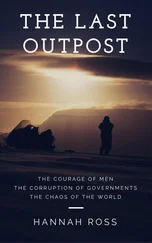GAUS:Always.
ARENDT:And the public realm is formed. In America where there are still spontaneous associations, which then disband again—the kind of associations already described by Tocqueville—you can see this very clearly. Some public interest concerns a specific group of people, those in a neighborhood or even in just one house or in a city or in some other sort of group. Then these people will convene, and they are very capable of acting publicly in these matters—for they have an overview of them. What you were aiming at with your question applies only to the greatest decisions on the highest level. And, believe me, the difference between the statesman and the man in the street is in principle not very great.
GAUS:Miss Arendt, you have been in close contact with Karl Jaspers, your former teacher, in an ongoing dialogue. What do you think is the greatest influence that Professor Jaspers has had on you?
ARENDT:Well, where Jaspers comes forward and speaks, all becomes luminous. He has an unreservedness, a trust, an unconditionality of speech that I have never known in anyone else. This impressed me even when I was very young. Besides, he has a conception of freedom linked to reason which was completely foreign to me when I came to Heidelberg. I knew nothing about it, although I had read Kant. I saw this reason in action, so to speak. And if I may say so—I grew up without a father—I was educated by it. I don’t want to make him responsible for me, for God’s sake, but if anyone succeeded in instilling some sense in me, it was he. And this dialogue is, of course, quite different today. That was really my most powerful postwar experience. That there can be such conversations! That one can speak in such a way!
GAUS:Permit me a last question. In a tribute to Jaspers you said: “Humanity is never acquired in solitude, and never by giving one’s work to the public. It can be achieved only by one who has thrown his life and his person into the ‘venture into the public realm.’” [g] “Karl Jaspers: A Laudatio,” in Men in Dark Times , 73–74.
This “venture into the public realm”—which is a quotation from Jaspers—what does it mean for Hannah Arendt?
ARENDT:The venture into the public realm seems clear to me. One exposes oneself to the light of the public, as a person. Although I am of the opinion that one must not appear and act in public self-consciously, still I know that in every action the person is expressed as in no other human activity. Speaking is also a form of action. That is one venture. The other is: We start something. We weave our strand into a network of relations. What comes of it we never know. We’ve all been taught to say: Lord forgive them, for they know not what they do. That is true of all action. Quite simply and concretely true, because one cannot know. That is what is meant by a venture. And now I would say that this venture is only possible when there is trust in people. A trust—which is difficult to formulate but fundamental—in what is human in all people. Otherwise such a venture could not be made.
“EICHMANN WAS OUTRAGEOUSLY STUPID”
INTERVIEW BY JOACHIM FEST
DAS THEMA , SWR TV, GERMANY
NOVEMBER 9, 1964
TRANSLATED BY ANDREW BROWN
FEST:Frau Arendt, do you think there is any connection between the Eichmann trial and the so-called concentration camp trials [*] Fest is referring here to a series of trials that ran from December 20, 1963, to August 19, 1965, in which a number of mid- and lower-level officials in the Auschwitz-Birkenau camp complex were tried for their crimes. The trials were notable for being largely open to the public, and they made many German citizens aware for the first time of the details and mechanisms of the Holocaust.
in Germany? And in particular, are the reactions in Germany and Israel in any way comparable? People have occasionally suggested that Germans and Jews have in common what is called—in a somewhat inadequate expression—an “unmastered past.”
ARENDT:Well, those are actually two questions. Perhaps I might answer the first one first: in my view, the Eichmann trial has really acted as a catalyst for the trials in Germany. Some of these took place earlier, and some arrests were made earlier. But when you look at this from the statistical point of view and bear in mind the date of Eichmann’s abduction, not the date of the Eichmann trial, of course, you’ll be overwhelmed, purely in terms of percentages. And I don’t want to say here why I think it was like this—it’s just a fact.
Now you are quite right to say that the question of the unmastered past is something the Jews and Germans have in common. I’d like to qualify that a bit. To begin with, of course, the actual kind of unmastered past that they have in common is very different in the case of victims and perpetrators; for even the Judenräte [†] Jewish councils, the administrative bodies of Jewish communities.
were, of course, victims. This doesn’t mean they are a hundred percent exonerated, but they obviously stand on the other side—that much is clear.
Now the unmastered past is also something that—I know this from America—Jews and Germans actually share with almost all countries or all peoples on earth, at least in Europe and America. The very horror that the whole business arouses affects everyone, not just Jews and Germans. What Jews and Germans have in common is the fact that they are the ones immediately involved.
And now you ask, “Is this reaction the same in Germany and Israel?” Look, a quarter of the population of Israel, twenty-five percent, consists of people who were immediately involved. That’s a huge percentage in a population. That they, as victims, obviously react differently from the average German of any generation, who has only one wish—never to hear anything more about it—is clear. But they don’t want to hear about it either; but for completely different reasons.
Now there’s one thing that I’ve noticed, and that’s the attitude of the younger generation in Israel and of those born in that country. And there’s a lack of interest that’s similar in some ways to the lack of interest in Germany. In Israel, they also feel, “It’s our parents’ problem”… Only now, of course, it’s different: “If our parents want this or that to happen… well, of course! They’re welcome! But they should please leave us out of it… We’re not very interested in that.” This was a really general feeling. So it’s a generational problem, as it is in Germany.
FEST:These trials—like the Nuremberg Trials, to some extent, and the associated trials held mainly in Nuremberg—have brought to light a new type of criminal.
ARENDT:It is indeed a new type of criminal, I agree with you on that, though I’d like to qualify it. When we think of a criminal, we imagine someone with criminal motives. And when we look at Eichmann, he doesn’t actually have any criminal motives. Not what is usually understood by “criminal motives.” He wanted to go along with the rest. He wanted to say “we,” and going-along-with-the-rest and wanting-to-say-we like this were quite enough to make the greatest of all crimes possible. The Hitlers, after all, really aren’t the ones who are typical in this kind of situation—they’d be powerless without the support of others.
So what’s actually going on here? I’d like to concentrate just on Eichmann, since I know him well. And the first thing I’d like to say, you see, is that going along with the rest—the kind of going along that involves lots of people acting together—produces power. So long as you’re alone, you’re always powerless, however strong you may be. This feeling of power that arises from acting together is absolutely not wrong in itself, it’s a general human feeling. But it’s not good, either. It’s simply neutral. It’s something that’s simply a phenomenon, a general human phenomenon that needs to be described as such. In acting in this way, there’s an extreme feeling of pleasure. I won’t start quoting reams of material here—you could go on quoting examples from the American Revolution for hours at a time. And I’d say that the really perverse form of acting is functioning, and in this functioning the feeling of pleasure is always there. Yet everything in action is also there in acting together with others, namely, in discussing things together, reaching certain decisions, accepting responsibility, thinking about what we are doing—all of which is eliminated in functioning. What you have there is mere freewheeling. And the pleasure in this mere functioning—this pleasure was quite evident in Eichmann. Did he take particular pleasure in power? I don’t think so. He was a typical functionary. And a functionary, when he really is nothing more than a functionary, is really a very dangerous gentleman. Ideology, in my view, didn’t play a very big role here. This seems to me the decisive factor.
Читать дальше












